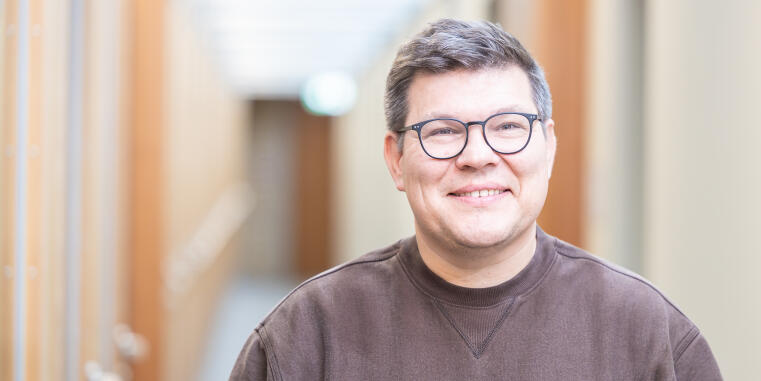

On 15 December 2025, Dr. Hauke Behrendt (Stuttgart) gave his Fellow Lecture on the topic of “Zugänge und Ausschlüsse – Kulturelle Teilhabe gestalten” (“Access and exclusion – shaping cultural participation”). After the lecture, he presented his new book, “Ethics of Digitalisation”.
The lecture discussed how digital technologies enable, limit and restructure cultural participation. Digitalisation is often seen as a catalyst for inclusion: it creates new access to art, knowledge and the public sphere. At the same time, new forms of exclusion are emerging – through algorithmic curation, economic barriers or subtle processes of digital standardisation. Based on the concept of participatory justice, inclusion is understood as a context-dependent and multidimensional relationship. The question of equitable participation in cultural practice is analysed in light of the trilemma of inclusion (Mai-Anh Boger), which distinguishes between three partly conflicting goals of inclusion: Normalisation (overcoming marginalisation by opening up centres), empowerment (overcoming domination through self-empowerment) and deconstruction (overcoming exclusionary categories by dissolving essentialisms). These three approaches are in a dynamic tension: each responds to a specific form of exclusion, but at the same time creates or reinforces other forms of exclusion. The lecture argued that cultural participation in digital change should be understood as a reflexive design task. Fair participation cannot be achieved through a single inclusion strategy, but only by consciously balancing these tensions. The example of art shows that aesthetic practice can open up a cultural space in which empowerment, normalisation and deconstruction enter into a productive interplay.
Dr. Hauke Behrendt is a lecturer (Akademischer Rat) at the Institute of Philosophy at the University of Stuttgart. His research focuses on applied ethics – in particular the ethics of digitalisation, medical ethics and diversity studies – as well as social and political philosophy.

